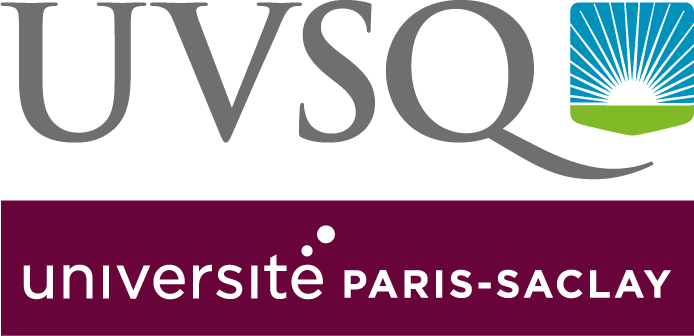Vous êtes ici : UVSQ RechercheDoctorat
- Mis à jour le 2 décembre 2019
- Version PDF
"Les transports urbains en Ile-de France : approche institutionnelle et juridique d’une intervention publique" par Céline Chabot
le 4 mars 2014
mardi 4 mars à 14h
Discipline: Droit Public, Laboratoire: Centre de recherche Versailles Saint-Quentin Institution Publiques
Résumé
Facteur d'entraînement économique et de cohésion sociale et territoriale, l’efficacité des transports urbains est essentielle à la dynamique de grandes métropoles mondiales telles que l’agglomération parisienne. Cette question a connu une évolution institutionnelle et juridique radicale, bien que tardive, avec un processus de décentralisation engagé depuis 2000. Dans ce contexte, l’étude vise à analyser les conditions de sa mise en œuvre qui a permis la mise en place d'un établissement public local doté de compétences renforcées tant sur la politique d'investissements que sur la définition des conditions d'exploitation des services de transports. Il s’agira également d’appréhender les effets perceptibles d’une telle réforme à l'aune de l'inéluctable obligation de mise en concurrence imposée par les politiques de l'Union Européenne. Néanmoins, en 2010, l'annonce du projet du Grand Paris viendra menacer la pérennité de ce système décentralisé, par une vision d'Etat en faveur d'un nouveau projet de transports ancré sur le territoire francilien. Pour autant, la contestation locale engendrée laissera progressivement place à la négociation et au compromis, donnant à un conflit institutionnel l'opportunité d'aboutir à un projet commun. Ainsi, avec le recul, il apparaît que, loin d'être remis en cause, le système reposant sur une unique autorité organisatrice des transports de rang régional est renforcé, et que désormais la clé de l’efficacité de l'organisation des transports urbains franciliens repose sur la collaboration entre l’Etat et les collectivités territoriales en faveur de l’élaboration de projets partagés.
Abstract
As a key factor of economic growth and social and territorial cohesion, the efficiency of public transports is essential to the dynamic of the major metropolises such as the Paris urban district. Although tardy, this issue has experienced radical institutional and legal developments, initiated in 2000 by a change towards decentralization. In this context, the study aims to analyze the conditions of its implementation, which have led to the establishment of a local public authority with enhanced skills both on the investment policy and on the definition of the operating conditions of transport services. It also focuses on the understanding of the noticeable effects of such a reform with regard to the inevitable obligation of competition, which is required by the European Union policies. However, in 2010, the announcement of the Grand Paris project brought to light a new transport project for the regional area that is supported by the State, thus threatening the sustainability of this decentralized model. Nevertheless, the following local protests gradually disappeared in favor of negotiations and compromise, giving to an institutional conflict the opportunity to result in a common project. Besides, in retrospect, it appears that, far from being questioned, the current system, based on a unique transport authority at the regional level, is strengthened, and that the key to the efficiency of the urban transports organization relies on the collaboration between state and local governments for the development of shared projects.
Facteur d'entraînement économique et de cohésion sociale et territoriale, l’efficacité des transports urbains est essentielle à la dynamique de grandes métropoles mondiales telles que l’agglomération parisienne. Cette question a connu une évolution institutionnelle et juridique radicale, bien que tardive, avec un processus de décentralisation engagé depuis 2000. Dans ce contexte, l’étude vise à analyser les conditions de sa mise en œuvre qui a permis la mise en place d'un établissement public local doté de compétences renforcées tant sur la politique d'investissements que sur la définition des conditions d'exploitation des services de transports. Il s’agira également d’appréhender les effets perceptibles d’une telle réforme à l'aune de l'inéluctable obligation de mise en concurrence imposée par les politiques de l'Union Européenne. Néanmoins, en 2010, l'annonce du projet du Grand Paris viendra menacer la pérennité de ce système décentralisé, par une vision d'Etat en faveur d'un nouveau projet de transports ancré sur le territoire francilien. Pour autant, la contestation locale engendrée laissera progressivement place à la négociation et au compromis, donnant à un conflit institutionnel l'opportunité d'aboutir à un projet commun. Ainsi, avec le recul, il apparaît que, loin d'être remis en cause, le système reposant sur une unique autorité organisatrice des transports de rang régional est renforcé, et que désormais la clé de l’efficacité de l'organisation des transports urbains franciliens repose sur la collaboration entre l’Etat et les collectivités territoriales en faveur de l’élaboration de projets partagés.
Abstract
As a key factor of economic growth and social and territorial cohesion, the efficiency of public transports is essential to the dynamic of the major metropolises such as the Paris urban district. Although tardy, this issue has experienced radical institutional and legal developments, initiated in 2000 by a change towards decentralization. In this context, the study aims to analyze the conditions of its implementation, which have led to the establishment of a local public authority with enhanced skills both on the investment policy and on the definition of the operating conditions of transport services. It also focuses on the understanding of the noticeable effects of such a reform with regard to the inevitable obligation of competition, which is required by the European Union policies. However, in 2010, the announcement of the Grand Paris project brought to light a new transport project for the regional area that is supported by the State, thus threatening the sustainability of this decentralized model. Nevertheless, the following local protests gradually disappeared in favor of negotiations and compromise, giving to an institutional conflict the opportunity to result in a common project. Besides, in retrospect, it appears that, far from being questioned, the current system, based on a unique transport authority at the regional level, is strengthened, and that the key to the efficiency of the urban transports organization relies on the collaboration between state and local governments for the development of shared projects.
Informations complémentaires
Nicole Lerousseau, Professeur des Universités, à l’Université François Rabelais, Tours – Rapporteur
Gérard Marcou, Professeur des Universités, à l’Université Panthéon-Sorbonne Paris 1 – Rapporteur
Jean-Pierre Lebreton, Professeur des Universités, à l’Université de Versailles Saint-Quentin-en-Yvelines – Directeur de thèse
Stéphane Manson, Professeur des Universités, à l’Université de Versailles Saint-Quentin-en-Yvelines – Examinateur
Gilles Godfrin, Maître de Conférences, au Conservatoire National des Arts et Métiers, Paris – Examinateur
Emmanuel Grandjean, Directeur, au Syndicat des Transports d’Ile-de-France, Paris – Invité
Gérard Marcou, Professeur des Universités, à l’Université Panthéon-Sorbonne Paris 1 – Rapporteur
Jean-Pierre Lebreton, Professeur des Universités, à l’Université de Versailles Saint-Quentin-en-Yvelines – Directeur de thèse
Stéphane Manson, Professeur des Universités, à l’Université de Versailles Saint-Quentin-en-Yvelines – Examinateur
Gilles Godfrin, Maître de Conférences, au Conservatoire National des Arts et Métiers, Paris – Examinateur
Emmanuel Grandjean, Directeur, au Syndicat des Transports d’Ile-de-France, Paris – Invité
Contact :
DREDVal Service FED : theses@uvsq.fr









 Etudiants
Etudiants